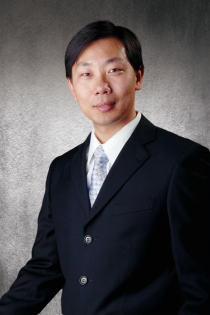东吴学术大讲堂(肖勇波)
发布者:系统管理员 发布时间:2018-10-09 浏览次数:169
主题:Trade-in for Cash or for Upgrade? Dynamic Pricing with Customer Choice
时间:2018年10月15日(周一)上午9:00-10:00
地点:财经科学馆三楼EMBA教室
报告人:肖勇波
报告人简介:

肖勇波,清华大学经济管理学院管理科学与工程系副教授,于2000年获得清华大学管理信息系学士学位,2005年获得清华大学管理科学与工程管理学硕士学位和博士学位,2008年在清华大学经济管理学院应用经济系完成博士后研究,2008年8月加入经管学院管理科学与工程系,2011年12月晋升为副教授,2014年10月获得长聘(Tenure)。是教育部长江学者青年学者(2016年)、国家自然科学基金优秀青年基金(2012年)和中国管理学青年奖(2014年)的获得者。主要研究领域为收益和定价管理、服务系统和服务管理、供应链管理。讲授课程包括服务管理、DMD(数据、模型与决策)、运筹学。
摘要:Trade-in programs for electronics products, e.g., smartphones, have been increasingly popular. These programs target at customers who seek to salvage or upgrade their old devices (we call them ``bargainers'). There are two widely adopted trade-in schemes: trade-in-for-upgrade and trade-in-for-cash. In this paper, we consider a manufacturer who offers both trade-in schemes (i.e., a hybrid trade-in program) to acquire old products, then refurbish and resell them, together with the new product. The bargainers choose which scheme to trade in their products while the new customers decide whether to buy a new product or a refurbished one. The firm dynamically sets the trade-in prices and the resale price of refurbished product so as to maximize its expected total profit over a finite selling season. We derive the optimal trade-in prices and resale price of refurbished product and the corresponding optimal trade-in and resale strategies under both {/em exogenous} and {/em endogenous} new product selling price cases. In particular, when the new product price is exogenously given, we show that the optimal trade-in and resale policies are of a threshold type and the optimal resale price of refurbished product and the optimal trade-in refunds are decreasing in the inventory level of refurbished product. When the new product price is endogenously determined, it is optimal for the manufacturer to set it at a constant during the entire season while adjusting the trade-in and resale prices over time, regardless of the refurbished product's inventory level. Our numerical results further show that the hybrid trade-in program could generate significantly more profit than either upgrade-only or cash-only trade-in program; and if only one trade-in scheme is offered, cash-only program performs better than upgrade-only program when the selling price of new product is low, depreciation of old product is fast, and the proportion of bargainers is relatively small.



